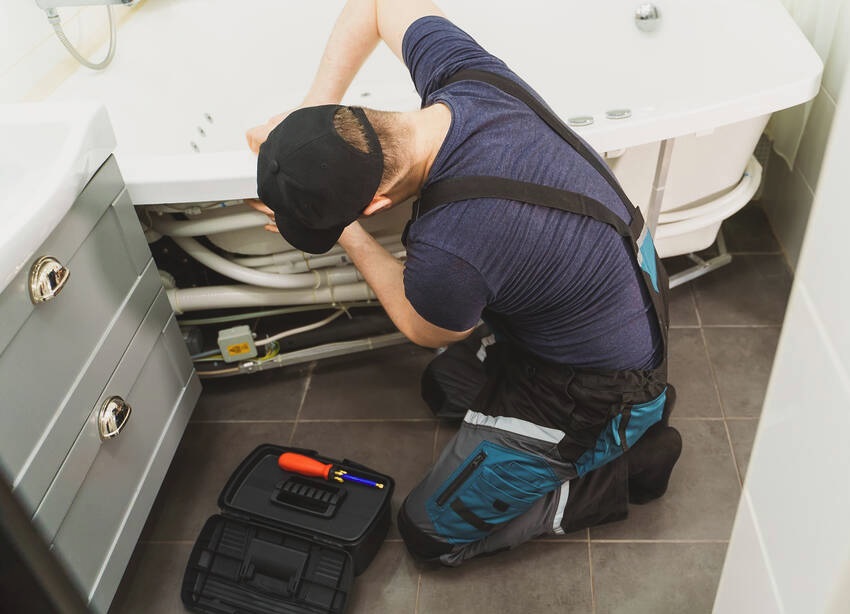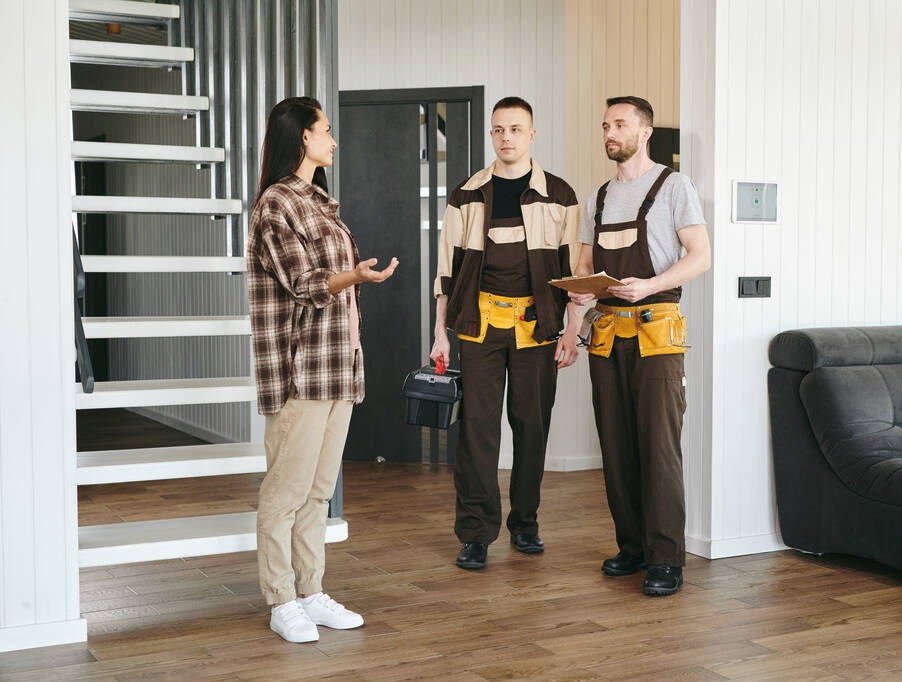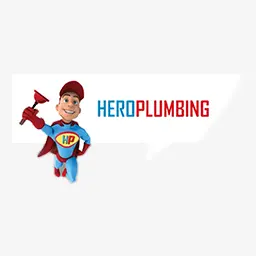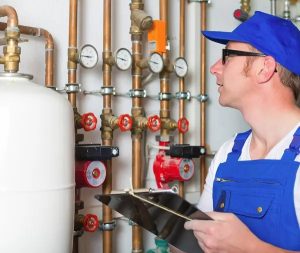Table Of Contents
- Plumbing Responsibilities
- What Is Meant By Strata Plumbing?
- Who Takes Responsibility For Strata Plumbing?
- Who Handles Strata Plumbing Maintenance?
- Who Handles Strata Plumbing Upgrades?
- The Functions Of A Strata Manager
- Plan Based On The Strata Title Guarantee
- Responsibility For Common Situations
- How To Reduce Strata Plumbing Costs
- Strata Plumbing Guidelines
- How To Prevent Water Damage In Strata Plan
Plumbing Responsibilities
When a plumbing issue arises, figuring out who is liable for repairs and upkeep (the strata owners’ company or the individual homeowner) may be difficult and time-consuming.
When it comes to plumbing, many of the components are concealed behind walls or under floors. When plumbing components aren’t immediately visible, figuring out who’s responsible for repairs may be difficult. This article will disclose the meaning of strata plumbing, who should be responsible for strata plumbing depending on the situation, and many more. Let’s dive right into it!
What Is Meant By Strata Plumbing?
There are many tiny and inconspicuous components in a plumbing system. Water may flow in and out of a strata-titled property via a pipe, fitting, or fixture network known as strata plumbing. Since as many private lots as possible are linked, numerous private lots share the underlying pipes and the general in-between and surrounding common property.
Contrary to popular belief, separate plumbing lines are uncommon in multi-unit buildings such as flats and townhouses unless they were included in the design from the beginning. Aside from the fact that it may be costly to construct, separate plumbing lines are not recommended since they lead to a plethora of pipe and fitting clutter.
Who Takes Responsibility For Strata Plumbing?

A strata scheme governs the ownership of a unit, townhouse, or apartment. Owners of homes on the same piece of land with common property have a stake in strata title. A ‘lot’ is the name given to each property. Owners corporations are responsible for the upkeep and management of the plumbing on common property. Each lot owner in a subdivision, whether a townhouse or an apartment complex, is represented by an owner’s company.
If strata plumbing problems arise, many owners wonder who is responsible. All of a building’s plumbing lines pass over into both shared and private land at different points. Plumbing pipes are everywhere. Owners’ corporations and homeowners’ insurance companies will often use strata title plans to identify who owns the pipe section in a loss. As a result of the complexity of this analysis, specialists like loss adjusters and attorneys are often required.
A fair resolution is sought since strata title plans, relevant laws, rules for private properties, and common property are all well-defined. Some frequently asked concerns regarding plumbing problems in strata houses are addressed here if you want to know who pays for them. The material provided here is not meant to be regarded as professional advice but only as personal advice, and that should be kept in mind. If you want to learn more about your particular property or strata plan, consult with a competent expert familiar with your situation.
Who Handles Strata Plumbing Maintenance?
Plumbing that serves common property and runs through it is funded partly by the owners, who all own a piece of it. In part, the revenues are used to pay for water services for standard property amenities and to guarantee that the plumbing inside common property borders is maintained and managed thanks to the owners’ corporation’s company fees. Plumbing on common land is managed and maintained by the owners’ company.
Daily water bill costs would be paid by the owners’ cooperative society (OCS). However, money will be withdrawn from the capital works or maintenance budget to repair plumbing lines in joint property and provide other plumbing services to familiar property owners.
Who Handles Strata Plumbing Upgrades?
Updating plumbing systems and fixtures is a challenging undertaking. Plumbing upgrades are frequently requested by apartment, unit, or townhouse complex owners who want their company to pay for them. A private lot owner will usually cover improvements that impact just their property if the owners’ company does not have enough money to cover the costs.
Before consenting to improvements as a group, property owners must weigh the benefits against the costs. Also, if you’re thinking of upgrading your private property’s plumbing, check with the owners’ company beforehand. This is because plumbing pipes that impact both common property and other lots may be damaged.
The Functions Of A Strata Manager
Owners’ corporate managers are in charge of the day-to-day operations of the company. Some states and territories name them corporations, corporate body managers, strata managing agent managers, or strata management agents. Building and common space maintenance is the responsibility of all lot owners in a strata-titled or community-titled design.
The owners’ committee issues directives, and they adhere to such directives. Strata managers are experts in their area, having the knowledge and skills necessary to run the owners’ company in compliance with the various state-based legislation’s requirements.
They also try to get the lot owners’ agreement on decisions and help the lot owners in other ways, such as taking on onerous duties. Real estate agents and resident managers do not have the same job responsibilities as these individuals.
Plan Based On The Strata Title Guarantee
If you’re buying a strata-titled property, you’ll want to study and understand the plan to make sure you know where the boundaries are. By establishing boundaries, you’ll know exactly who’s responsible for what. If you’re still unsure about the plans, it’s best to consult with a professional so you can make an educated choice.
Liability for a strata plumbing event will be determined using the appropriate plans and studying all applicable laws and regulations. For instance, a water law applies to leaks in apartment and condominium buildings (i.e., from one floor to another).
Responsibility For Common Situations

The party responsible for strata plumbing problems is determined by the source of the leak or problem. This may be difficult to find, but plumbers are equipped with the right equipment, skills, and expertise to find the problem quickly.
This ensures the job is done accurately so that their findings can be used as evidence in negotiations or lawsuits. Provided below are frequent plumbing problems and who holds the responsibility in each case.
Wet Floor in a Private Residence
Any leaks originating from an inside fitting are the individual owner’s responsibility, even if they can be traced back to a plumbing issue with the property infrastructure as a whole.
A Leak in the System
How far the breach has spread depends on how quickly it happened. If an inside fixture on a private lot owner’s property caused the leak, that lot owner would be held liable. Whereas if the inter-wall piping that serves several properties causes the leak, the owners’ company will be held responsible.
Pipe Burst Under the Subfloor of a Residential Property
Unless a private lot owner created the problem, the owners’ company is typically responsible for repairing a burst pipe beneath your property (i.e., your toilet, kitchen sink, dishwasher, laundry trough, etc.).
Water Dripping from Balcony Above
If the balcony of the above owner is the source of water leaking on your property, either the owners’ company or the owner above will be held liable. The majority of the time, the decision will be made by the owner.
Mouldy and Wet Areas
Many people believe that mould and moisture problems are rare, yet they are pretty frequent and severe. When dampness and mould are present, it’s not always because of a problem with the plumbing. Hire a licensed contractor to get to the bottom of any issues you’re having.
How To Reduce Strata Plumbing Costs
Strata plumbing expenses may be reduced in a variety of ways. Proper management and frequent maintenance of strata plumbing are critical. The total long-term cost is cheap, and the integrity of the plumbing system is high. You will suffer frequent short-term expenses.
Strata plumbing should be overseen by a building manager in charge of the whole apartment, unit, or townhouse complex. The building manager will examine garden faucets, sprinkler systems, swimming pools, and other standard property plumbing to ensure private lot owners do not abuse or tamper with them.
Strata Plumbing Guidelines
Even if you take every measure to minimise the risk of plumbing damage or failure, it may still occur. If you experience property damage as a lot owner in a strata plan, it may be tough to figure out who to contact and what precisely you are liable for fixing.
Any plumbing problem or damage, whether on your personal property or shared property, should be reported as quickly as possible if you own a lot. Once the strata owners’ company has been notified, it is their responsibility to hire an expert to examine the damage and determine who is responsible.
There’s no need to hold a meeting for minor repairs; nevertheless, you should always verify with the regulations of your strata owners’ organisation to be sure. The strata owners’ corporation may have to meet to consider the cost and course of action for more significant repairs.
Here are recommendations to follow for water damage, as well as for electrical and fire-related problems:
- The strata owners’ organisation is in charge of making repairs to shared property if anything goes wrong. Repairs to the damaged item, such as a broken pipe or a blocked drain, are included.
- Should any strata lot or common property be damaged and the cost of the damage exceeds the strata owners’ corporation’s insurance deductible, the parties involved may file an insurance claim under the corporation’s policy. The owners’ company pays for all maintenance but not for any upgrades or additions. The insurance then reimburses the company. The owners’ company may elect to submit an insurance claim if the water damage is less than or exceeds the minimal deductible. As a result, lot owners will still be able to claim their insurance benefits.
- The strata owners’ organisation may seek payment of the insurance deductible if the damage starts on one lot and extends to another or shared property. In many cases, owners’ associations have adopted a “chargeback” by-law that enables them to sue a liable lot owner for the deductible they paid.
- The body corporate will be via the strata manager called to respond quickly if a plumbing problem such as a roof leak occurs during a storm. This is because the leak’s origin may be a mystery then. Because asking the property owner to fix the issue is unreasonable, the owners’ association should hire a roof plumbing expert to stop the leak promptly.
How To Prevent Water Damage In Strata Plan
You and the owners’ company can avoid water damage in a condominium complex by taking various measures. Regular inspection and maintenance of the plumbing infrastructure by a qualified plumber are critical. However, due to the expense and hassle, owners often do not invest in frequent inspections.
This may make things worse by causing people to ignore minor problems until they become major ones. There should be a code of behaviour for water use, sewage disposal, private plumbing improvements, hot water usage, and other plumbing-related issues specified in the owners’ company regulations in addition to the regular maintenance.
As a result, property owners and tenants will be more careful while using the plumbing system. As such, this will limit the number of times you will need a professional to come out and fix a problem. However, if the problem is left too long or is too severe there is most likely a need for professional services to be contacted.











